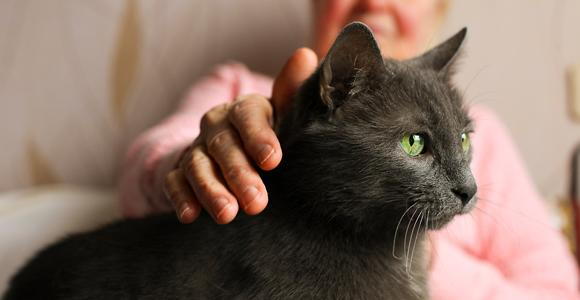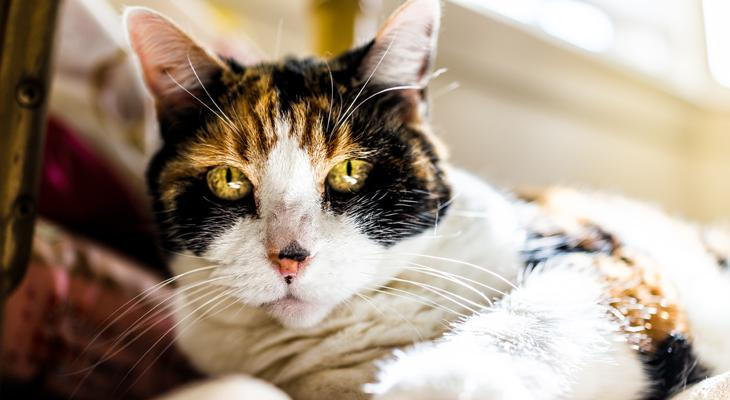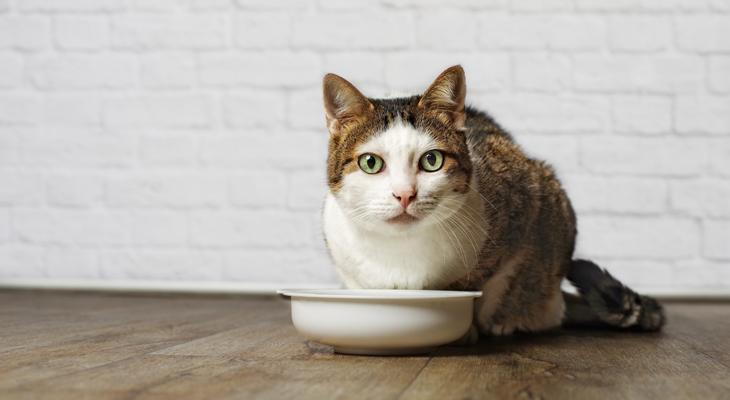
With today’s advances in veterinary medicine and improved nutritional options, senior cats can remain healthy and active well into their teens and beyond. Many consider a cat to be a senior when they hit 12 to 14 years of age. While some senior cats may need additional care and attention as they age, others experience relatively few changes to their overall health.
A pet owner may not notice physical and behavioral changes in a senior cat. Why does this happen? Some changes may be obvious to the average person, while others are more subtle and may require a professional’s perspective.
Regular veterinary visits provide an opportunity to note and address any concerns about a senior feline. From a cat’s home environment to dietary needs, adaptations may be required to help a cat thrive in its later years. Understand more about how to support a senior cat’s health.
A Cat-Friendly Environment for Seniors

A senior feline can lose some of their previous mobility as they age. Creating an accessible environment for a senior cat includes considerations such as how easy it is for a cat to attend to its wants and needs.
Talking about mobility, some cats may no longer be able to get to their favorite locations, such as warming themselves on a windowsill. In many instances, this can be easily remedied. Adding a pet stair or ramp can provide firm footing for the cat and allow them to get to higher spots like sofas and windowsills.
Senior cats often crave warmth. A cat’s bed or place to rest should be in a warm, though not hot, area. It is also best to keep them away from drafts. This helps to create a more comfortable environment for senior cats that often like to sleep more than before.
As in older people, cats can suffer from vision loss. It can be helpful to add nightlights for navigation and keep a cat’s environment consistent. Now is not the time to plan a larger home renovation or place a cat in a new environment. Even changes in furniture arrangement may disorient an older cat. In addition, cats with vision or hearing loss may be alarmed easily and may not want to be picked up.
Some cat owners think that getting a kitten will help their senior cat. Senior cats often do not benefit from having an active kitten in the home, and in some instances, are ignored when a kitten arrives in a home. Instead, it is best to encourage gentle exercise and play with an older cat, such as walking with a cat inside the home or waving a wand.
Exercise and mental stimulation support a cat’s quality of life and, although the level of play and engagement may need to be adjusted to a cat’s age and interests, it does not need to end in its senior years. As they age, they may either want to be left alone or may want more attention. Overall, senior cats prefer a predictable routine and environment with minor, if any, changes.
A senior cat can make more messes when it comes to using the litter box. One reason for this is that a senior cat may not have as much control over its bowel movements. Having a litter box that has low sides on each floor of the home can be useful to them.
Such an arrangement makes it easier for a cat to go to and use the litter box. A senior cat that will no longer defecate in a normal litter box will often do so in a box with lower sides, like a cookie sheet. Senior cats may have trouble climbing stairs, making it more important for them to have their food, water, and litter boxes close by. This type of arrangement may need to be set up on multiple floors, depending on the mobility level of a senior cat.
Dietary Changes

A senior cat is often less active and may tend to eat more or less than before. They would benefit from a diet formulated for their stage in life and within a specific calorie range. There are many nutritional options available but it may be best to discuss what a specific senior cat requires as they may also develop certain conditions as they age.
It is not only the type of food that may change. For instance, an older cat may experience digestion issues and a pet owner may want to provide more frequent, although smaller meals, throughout the day. Older cats need access to clean water as they may have poorer kidney function as they age.
It is also important to encourage senior cats to drink water. This can be done by having additional water stations throughout the home in areas that are easy for them to access. For additional water absorption, it can be useful to provide meals that are a mixture of canned and dry cat food. It is also important to encourage senior cats to drink water.
Signs of Illness
Often, sudden changes can denote an issue in a senior cat. A cat that can no longer groom itself may have a health issue and may require an owner to gently brush it. Other signs that may be attributed to aging, but be symptoms of a disease, are a poor hair coat and weight loss. Such issues can be related to dental disease, including oral tumors and gum disease. Unchecked dental infections can impact a cat’s liver, heart, and other organs.
Not all cats exhibit signs of pain. Cats who have arthritis may not show their discomfort, although the condition can be identified using an x-ray. Keeping a cat at a healthy weight can reduce discomfort in affected joints. Certain breeds may be more prone to developing specific conditions, so it is best to discuss concerns with your veterinarian.
Planning Veterinary Visits for Your Senior Feline
When it comes to veterinary care, a senior cat benefits from a six-month check-up and an annual geriatric exam, which will include x-rays and blood work. Veterinary exams and routine oral exams can be used to identify developing issues and create a treatment program. Regular check-ups and exams at your veterinarian’s office can help to support your cat’s changing needs.

